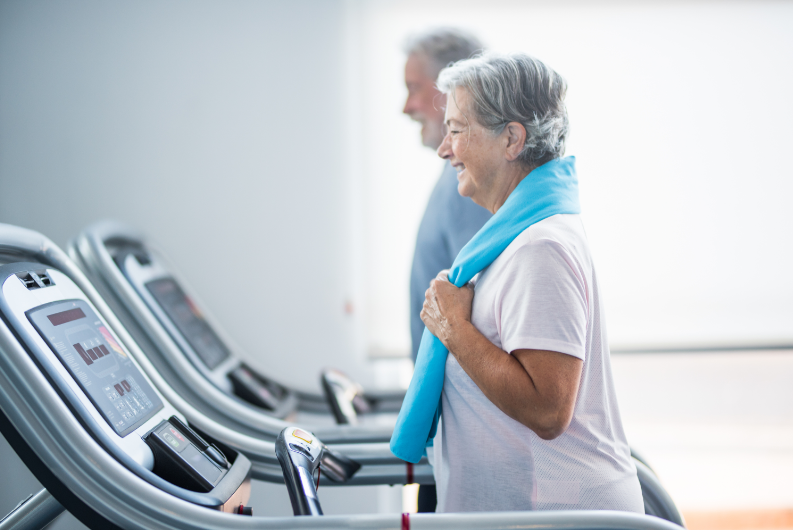As our loved one’s age, their health and wellness need ultimately change.
While this may be nerve-wracking and unfamiliar, we can support them in many ways.
With their permission, we can assist seniors with establishing good habits to make aging enjoyable.
Today, we’ll discuss 5 suggestions to improve the quality of life for seniors.
Deal with Depression
Depression isn’t a normal part of aging, but it affects between 1% and 13.5% of people over 65.
Depression is a mood disorder characterized by:
- Low mood and feelings of hopelessness/numbness/sad
- Changes to appetite
- Sleep disturbances
- Impaired thinking and concentration
- Lack of interest in preferred activities
- Restlessness and irritability
- Suicidal thoughts and actions
For older people, contributing factors can range but may include:
- Loss of a partner or loved ones
- Health issues
- Loneliness/social isolation
- Genetics
- Lack of physical activity
- Physical limitations
A qualified doctor should treat depression.
There are multiple treatment options, the most popular being medication and psychotherapy.
Often, these treatments are combined for the best outcome.
While we can’t cure our loved one’s depression, we can show our support.
- Check in on them often
- Help them seek treatment if they want it
- Help them make appointments
- Do activities with them that they enjoy
- Encourage them to stick to their treatment plan if they have one
Maintain an Active Lifestyle
Everyone can benefit from exercise, especially seniors.
Staying physically active helps increase strength, flexibility, and cardiovascular health.
The daily recommended amount of exercise is 150 minutes per week (30 minutes/day, 5 days/week), or as often as physical ability allows.
Exercise should be challenging without being unsafe.
Weekly workout routines should include a mixture of cardio and strength training, like:
Cardio
- Running
- Brisk walking
- Hiking
- Biking
- Rowing
Strength Training
- Weight lifting
- Resistance bands
- Bodyweight exercises
- Heavy yard work
We can help our senior loved ones by:
- Helping them plan a workout routine
- Bringing them to their fitness classes
- Being their workout buddy
Be Mindful of Nutrition
Like anyone, a well-balanced diet is critical to a healthy body.
Older people may experience changes to their nutrition for many reasons:
- Lack of mobility, making them unable to cook
- Tooth and mouth issues that make eating difficult
- Medication that affect appetite
- Changes to household dynamics, like suddenly living alone
A well-rounded diet should include:
- Fresh fruits and vegetables
- Whole grains
- Lean proteins
- Food that contains vitamin D, like cheese, milk, soy milk, etc.
- Beans and legumes
- Nuts and seeds
- Lots of water
To help seniors eat nutritious food, we can:
- Help them meal prep healthy food for the week
- Encourage them to avoid empty carbohydrate, like chips and baked goods
- Take them out for healthy lunch dates
- Pick up their groceries (using a list they’ve provided)
- Help them plant a vegetable garden, if possible
Connect with Community
Approximately one-third of people over 45 are reportedly lonely, and one-fourth of people over 65 are socially isolated.
Social isolation increases poor health outcomes significantly, including dementia, heart disease, and premature death.
To help our older loved ones stay connected, we can:
- Encourage them to nurture existing friendships
- Call them regularly
- Arrange family gatherings
- Ensure they have access to transportation and assistive mobility devices
- Encourage them to join social groups, volunteer, etc.
- Accompany them on day trips around town
- Help them explore their sense of purpose and find likeminded people
- Set up video chats with friends and family
Manage Medical Care
We all need physical tune-ups, which may increase as we age.
To ensure our favorite seniors stay healthy, it’s important that we encourage them to stay on top of their medical care.
- Attend appointments with them (doctor, dentist, psychologist, etc.)
- Set reminders for them to schedule medical follow ups
- Get them a pill box to helps keep medications organized
- Arrange for a home nurse, if necessary
- Encourage them to speak with their doctor about useful supplements (e.g., vitamin D, B12, iron, etc.)
Older people are valuable members of our lives.
Like everyone, seniors need to approach their wellness from multiple angles.
When people care for the emotional, physical, medical and social elements, aging becomes more comfortable.
While we can’t force people to take care of themselves, we can encourage them with loving action,
Sources
https://www.cdc.gov/aging/depression/index.html
https://www.nia.nih.gov/health/depression-and-older-adults
https://www.cdc.gov/physicalactivity/basics/older_adults/index.htm
https://www.cdc.gov/aging/publications/features/lonely-older-adults.html

